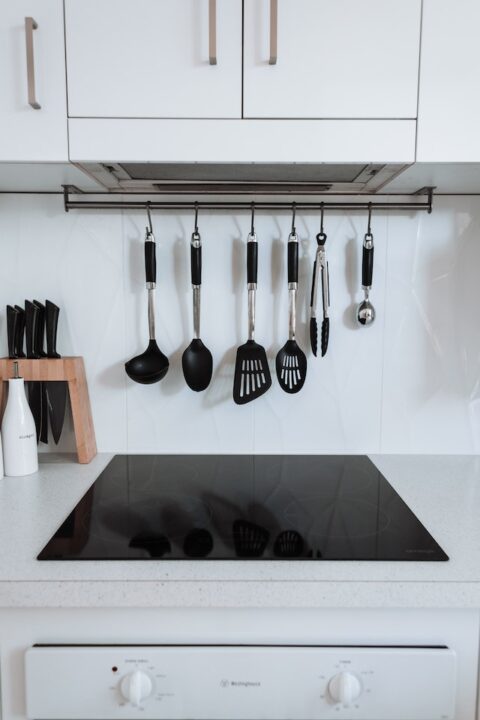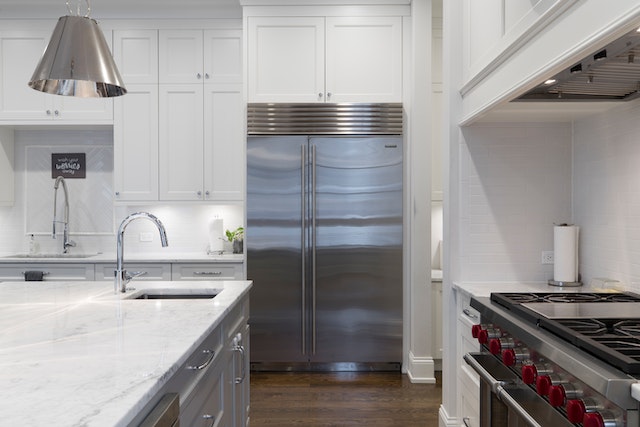Kitchen appliances, from your refrigerator to your oven, consume a considerable portion of your home’s energy.
As energy costs rise and environmental concerns become more prevalent, many homeowners in Australia are turning to energy-efficient appliances.
This article delves into the benefits of these appliances, from cost savings and improved home value to a reduced environmental footprint.

Introduction to Energy Efficiency in Australia
Australia, like many countries worldwide, is growing increasingly aware of its energy consumption and its impacts.
This section will introduce the current state of energy consumption in Australia and the increasing importance of energy efficiency.
Overview of Energy Consumption in Australian Homes
A typical Australian home uses energy in various ways, from heating and cooling to lighting and appliance use.
Appliances, particularly kitchen appliances, can account for a significant portion of this usage.
The energy consumption of different appliances and the potential for savings will be explored further in this article.
The Importance of Energy Efficiency in Australia
Energy efficiency is critical in Australia for several reasons. For homeowners, it means lower energy bills and a more comfortable home environment.
For the country as a whole, improving energy efficiency can help reduce greenhouse gas emissions, decrease reliance on fossil fuels, and contribute to a more sustainable energy future.
What Makes an Appliance Energy-Efficient?
Before we delve into the benefits of energy-efficient appliances, it’s important to understand what makes an appliance energy-efficient.
This section will explain energy rating labels in Australia and how technology plays a role in improving energy efficiency.

Understanding Energy Rating Labels in Australia
In Australia, appliances come with energy rating labels that show their energy efficiency on a scale from one to six stars.
The more stars an appliance has, the more energy efficient it is. These labels can help you compare the energy efficiency of different appliances and make an informed purchase decision.
The Role of Technology in Energy Efficiency
Technological advances play a significant role in improving the energy efficiency of appliances.
Features like improved insulation, more efficient motors, and advanced thermostats can significantly reduce an appliance’s energy consumption.
This section will dive deeper into how technology is improving energy efficiency.
The Benefits of Energy-Efficient Kitchen Appliances
The benefits of energy-efficient kitchen appliances are wide-ranging.
From reducing your environmental impact to saving you money and improving your home’s resale value, these benefits will be explored in detail in this section.
Reducing Your Environmental Impact
Energy-efficient appliances consume less electricity, which means they produce fewer greenhouse gas emissions.
By choosing energy-efficient appliances, you can significantly reduce your carbon footprint and contribute to a more sustainable future.
Significant Cost Savings
While energy-efficient appliances may cost more upfront, they can save you money in the long run through lower electricity bills.
Over the lifetime of the appliance, these savings can more than offset the higher purchase price.

Improving Your Home’s Resale Value
Energy-efficient appliances can also increase your home’s resale value. Many homebuyers are willing to pay more for a home with energy-efficient features, recognizing the long-term savings they offer.
Understanding Different Types of Energy-Efficient Appliances
From refrigerators to microwaves, various kitchen appliances can be energy-efficient. This section will provide an overview of different types of energy-efficient appliances and their benefits.
Energy-Efficient Refrigerators and Freezers
Energy-efficient refrigerators and freezers use advanced technology to minimize energy consumption.
Features like improved insulation, more efficient cooling systems, and smarter temperature controls can all contribute to energy savings.
Energy-Efficient Ovens and Stovetops
Energy-efficient ovens and stovetops can reduce energy consumption in several ways. Convection ovens, for example, cook food more evenly and quickly, reducing the amount of energy needed.
Induction cooktops, meanwhile, use electromagnetic fields to heat pans directly, making them more energy-efficient than traditional electric or gas cooktops.

Energy-Efficient Dishwashers
Modern dishwashers are much more energy-efficient than older models. They use less water and have more efficient heating elements.
Some models also have energy-saving features like load sensing, which adjusts the amount of water used based on the size of the load.
Energy-Efficient Microwaves
Microwaves can be more energy-efficient than conventional ovens, especially for smaller meals. Some models also have energy-saving features like variable power settings and automatic shut-off timers.
Guide to Purchasing Energy-Efficient Appliances in Australia
Once you’ve decided to invest in energy-efficient appliances, the next step is to understand how to choose the right ones.
This section will provide a guide to purchasing energy-efficient appliances in Australia, including factors to consider and where to buy them.

Key Factors to Consider
When buying an energy-efficient appliance, you’ll want to consider factors like the energy rating, the size of the appliance, and any energy-saving features it has.
It’s also important to consider the appliance’s total lifetime cost, including both the purchase price and the energy costs over its expected lifespan.
Where to Buy Energy-Efficient Appliances
Energy-efficient appliances can be purchased from a variety of retailers in Australia, both online and in physical stores.
Some retailers specialize in energy-efficient products and can provide expert advice to help you make the right choice.
Of course, if choosing new appliances is part of your kitchen renovation, our experienced team can assist you in this decision-making process.
Incentives and Rebates for Energy-Efficient Appliances in Australia
To encourage the use of energy-efficient appliances, some government programs and energy companies in Australia offer incentives and rebates.
This section will provide an overview of these programs.
Government Incentives
The Australian government offers various incentives to promote the use of energy-efficient appliances. These may include rebates, tax credits, or low-interest loans.
These programs can make energy-efficient appliances more affordable and speed up the return on your investment.
Energy Company Rebates
Some energy companies in Australia also offer rebates for energy-efficient appliances. These rebates can help offset the higher upfront cost of these appliances and make them more affordable.
Maintenance Tips for Energy-Efficient Appliances
To ensure that your energy-efficient appliances continue to perform at their best, regular maintenance is essential. This section will provide some general maintenance tips for energy-efficient appliances.
Ensuring Optimal Performance
Proper use and regular maintenance can help ensure that your energy-efficient appliances continue to perform optimally.
This can include cleaning the appliance regularly, using it according to the manufacturer’s instructions, and getting it serviced regularly.
When to Repair or Replace
Like any appliance, energy-efficient appliances can break down or become less efficient over time.
When this happens, it’s important to weigh the cost of repairs against the cost and potential energy savings of a new appliance.

Conclusion: The Future of Energy Efficiency in Australian Kitchens
With rising energy costs and growing environmental concerns, the trend towards energy-efficient appliances in Australian kitchens is likely to continue.
As technology continues to advance, we can expect to see even more energy-efficient options on the market, providing even greater benefits for homeowners and the environment.





